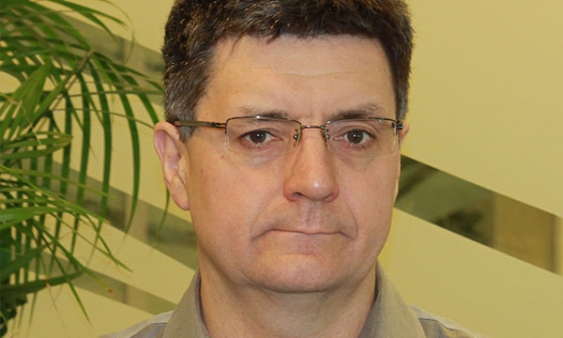
NSD leads blockchain implementation in Russia
With the perfect regulations in place, NSD will soon usher a new asset class for the country’s investors.
The first in the world to roll out an e-voting system prototype for bondholders, Russia’s National Settlement Depository (NSD) continues to lead the sector as it embarks on new projects to implement blockchain technology. NSD’s e-voting system prototype involves data interchange through the chain of nominee holders between the issuer and the owner of securities, back and forth. NSD has the task to maintain that voting ledger and ensure the delivery of voting instructions and vote counting.
Artem Duvanov, director of innovations, NSD, said that they recognise how fintech will inevitably change the business model of many companies, whether that would be retail, banking, or infrastructure. Across the globe, trends include regulator initiatives in market data collection and analysis, the use of artificial intelligence and blockchain, and bringing together various platforms to come up with a single data stream for market analysis and launch of new products for clients.
“We at NSD are actively involved in socalled digital transformation: we analyse new technology emerging in the market, assess its potential impact on us in terms of both opportunities and threats, and decide on our further steps,” Duvanov said.
“The financial sector today is a cyberspace, with processes transitioning online, and there is no doubt that the trend will continue. Some companies would be able to adapt and add value to clients, whilst others will have to leave,” he added.
Breakthrough technology
Nonetheless, despite the growth and emergence of new technologies such as big data and artificial intelligence, the narrow nature of NSD’s business has notgiven it much freedom to employ these technologies.
Duvanov said that they simply do not have any tasks where those technologies could be efficiently leveraged. However, with the rise of blockchain, NSD was able to find the right technology for them, one that can break new grounds in Russia’s financial sector.
According to the director of innovations, blockchain’s use in the disruption of technology within centralised systems makes it apt for NSD, which is highly-based on such a system. As blockchain continues to evolve, the financial sector sees how many opportunities can be created and tapped to the maximum extent possible.
Duvanov said that at present, they have two business cases for NSD and blockchain: shareholder voting and commercial papers. “In 2017, NSD presented a settlement platform for the issuance of commercial papers by a major mobile network operator. As part of the project, the challenges of ensuring confidentiality of data regarding securities balances and ensuring compliance with specific requirements of Russian laws were successfully solved,” Duvanov noted.
Going into 2018, NSD partnered with Sberbank CIB, the corporate investment banking arm of Sberbank and announced their intention to jointly test the initial NSD leads blockchain implementation in Russia coin offering (ICO) blockchain-based technology through the Bank of Russia’s regulatory sandbox.
According to Duvanov, testing the pilot project through the regulatory sandbox will allow them to assess the specifics of such transactions, minimise risks, and gain insight from the Bank of Russia in the improvement of transaction mechanisms.
Development process
To further develop and implement the technology, Duvanov said that it is important to have the right regulatory environment in place. He said that NSD believes it is crucial to have a common regulatory framework for distributed ledger technology across sectors.
As a start, NSD established the CSD Working Group on distributed ledger technology (DLT) to work on requirements and standards as well as shape best practices within the network. “We are moving step by step, building expertise and demonstrating to the market the long-term benefits of the new technology,” said Duvanov.
“Our goal is to scale up the technology for various financial transactions and processes. One of the priorities is to reduce the cost of transactions for all players through greater volumes of transactions and involvement of a wide range of issuers and investors.”
Going forward, NSD will continue to actively collaborate with market leaders, especially in building a settlement infrastructure for digital assets, an essential prerequisite for institutional investors to enter the market and ensure its dynamic development and capitalisation growth.
Duvanov said that ultimately, their goal is to lay down a foundation for the development of Russia’s digital economy and ensure the emergence of a new asset class for investors, as well as ecosystems for ICOs and digital assets trading in the secondary market






















 Advertise
Advertise








